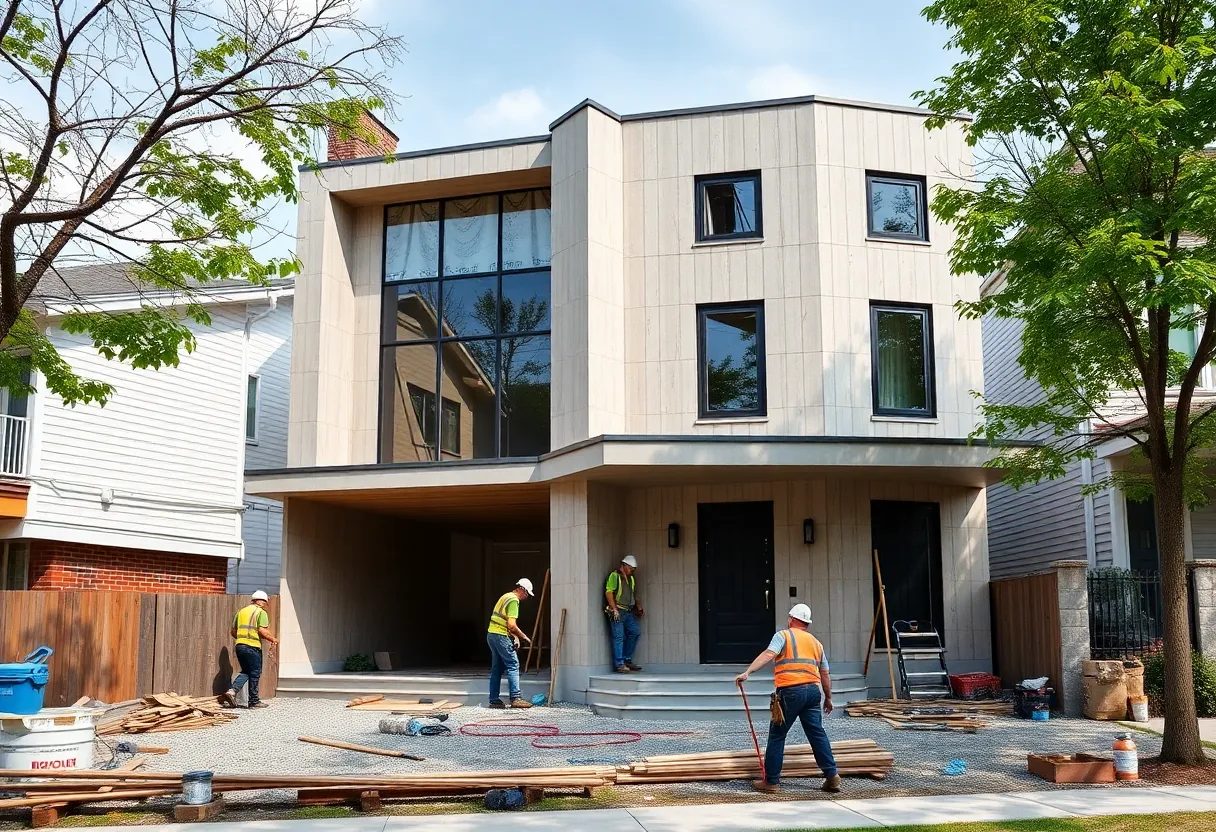News Summary
The COVID-19 pandemic disrupted the diagnosis and management of pleural mesothelioma in the Netherlands, leading to a significant decline in diagnoses during 2020. While there was a notable shift towards best supportive care and a decrease in chemotherapy, the incidence of diagnoses partially rebounded in 2021. Despite these treatment variations, overall patient survival rates remained stable. The findings highlight the resilience of cancer care in challenging circumstances and underscore the long-term trends in surgical procedures affected by the pandemic.
Amsterdam Reports COVID-19 Pandemic Impact on Pleural Mesothelioma Diagnoses and Treatments
Amsterdam, Netherlands — The COVID-19 pandemic has significantly affected the diagnosis and management of pleural mesothelioma (PM), a rare but aggressive cancer commonly linked to asbestos exposure. A recent study utilizing data from the Netherlands Cancer Registry outlines the extent of these impacts from 2018 through 2022.
Significant Decline in Mesothelioma Diagnoses During the Pandemic
The study observed a 13.2% reduction in newly diagnosed cases of pleural mesothelioma in 2020, the peak year of the pandemic. This decline was attributed mainly to delayed hospital visits and diagnostic procedures caused by fears of virus transmission, along with disruptions in healthcare services. The decrease indicates that many patients may have experienced postponement or omission of initial diagnostic assessments during this period.
Changes in Treatment Patterns in 2020
Alongside the reduced diagnosis rates, treatment approaches for patients diagnosed with PM changed markedly. There was a 58.8% increase in patients receiving only supportive care, reflecting the severity of the service disruptions and possibly the advanced age and comorbidities of many patients. At the same time, the use of chemotherapy decreased from 39.4% in 2019 to 32.0% in 2020, signaling a potential impact on treatment initiation and availability.
Recovery and Trends Resuming in 2021 and 2022
By 2021, as the Netherlands’ healthcare system began recovering and adapting to pandemic conditions, there was a 15.2% increase in PM diagnoses compared to 2020, indicating a rebound in diagnostic activities. The introduction of immunotherapy following its approval in the country also contributed to new treatment options, resulting in increased usage in 2021.
Conversely, in 2022, surgical procedures for PM decreased again, possibly reflecting ongoing pandemic-related challenges or shifts in treatment strategies. Despite variations in management, the overall survival rates for mesothelioma patients remained statistically unchanged across the studied years, with a median survival time of approximately 9 months.
Demographic and Survival Data
The data consistently showed that male patients affected more than females, accounting for 82.3% to 87.5% of cases, with the median ages between 75 and 77 years. Notably, despite the fluctuations in diagnosis and treatment rates, the overall survival remained stable, suggesting resilience in the healthcare approach and treatment effectiveness during these years.
Additional Observations and Context
The study highlights that the Netherlands experienced trends similar to other countries regarding decreased cancer diagnoses and treatment during periods of severe COVID-19 outbreaks. These disruptions raised concerns about potential underdiagnosis and delayed care in cancer management systems globally.
The researchers acknowledged limitations, including possible underdiagnosis and the challenge of fully capturing pandemic-related diagnostic delays, which may have affected the completeness of the data. Nonetheless, the overall picture indicates that the COVID-19 pandemic caused a temporary disturbance in pleural mesothelioma management but did not significantly alter long-term survival outcomes.
Conclusion
In summary, the Dutch study demonstrates that the COVID-19 pandemic caused notable disruptions in pleural mesothelioma diagnoses and treatment in 2020, with subsequent partial recovery seen in 2021. Despite these disturbances, survival rates remained consistent through 2022, underscoring the resilience of the cancer care system amid unprecedented challenges.
Deeper Dive: News & Info About This Topic
HERE Resources
Major Developments in Mesothelioma Litigation and Corporate Accountability
EPA Faces Legal Challenges Over Asbestos Regulation Reversal
Additional Resources
- Nature: COVID-19 Impact on Pleural Mesothelioma
- Wikipedia: Mesothelioma
- Wiley: Impact of COVID-19 on Cancer Care
- Encyclopedia Britannica: Cancer
- Google Search: Cancer management COVID-19
Author: STAFF HERE WASHINGTON DC
The WASHINGTON DC STAFF WRITER represents the experienced team at HEREWashingtonDC.com, your go-to source for actionable local news and information in Washington, DC, and beyond. Specializing in "news you can use," we cover essential topics like product reviews for personal and business needs, local business directories, politics, real estate trends, neighborhood insights, and regional news affecting the area—with deep expertise drawn from years of dedicated reporting and strong community input, including local press releases and business updates. We deliver top reporting on high-value events such as the National Cherry Blossom Festival, Kennedy Center Honors, and the Washington Auto Show. Our coverage extends to key organizations like the Greater Washington Board of Trade and Destination DC, plus leading businesses in government contracting and technology that power the local economy such as Lockheed Martin and Amazon. As part of the broader HERE network, we provide comprehensive, credible insights into the dynamic landscape of the Washington metropolitan area.




